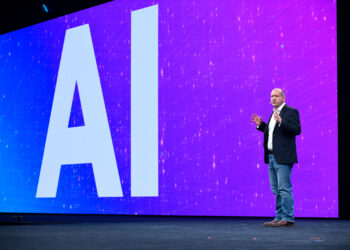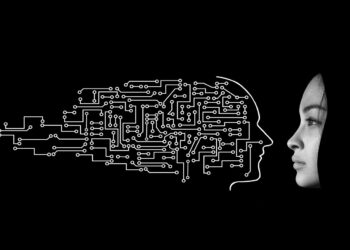A few months ago I found myself unexpectedly looking for a new role. It was the first time in well over a decade that my next move was not designed by me, on my terms, and on a mutual timeline. Alongside all the other big emotions flooding my body, it was scary. Uncertainty and change, and being called on to use long unused skills is hard.
The post-AI world of employment is different. AI is ubiquitous in job searches, recruitment, screening and hiring process. So naturally I spent the first few days using Google’s Gemini, Teal, and other tools to help update my CV (and boy did it need some work); to create custom versions for different roles; to draft cover letters which may or may not be read by a computer or a human.
Several different prompts provided conflicting advice about how to structure the CV – how long should it be, font size, etc. Some of the AI drafted cover letters were good, a few were great and sounded like me, but most were rubbish. I could research the role and company in seconds using Gemini.
I had tab after tab of Google’s NotebookLM open to optimise and prep. The algorithms for LinkedIn and others matched my skills to jobs daily, even if many were not at all what I would consider a match. I was quickly starting to get bogged down with all of the choices, all of the research, all of the suggestions.
So I took an afternoon off to clear my mind.
During that afternoon I called a few friends to chat. Not to ask about jobs or leads or introductions, but just to catch up and improve my mental health. And each conversation contained something that absolutely none of the AI interactions did – empathy. And not just empathy, but a genuine desire from those I called to offer me support. To point me to a company who was growing. To offer an intro to a headhunter. To review my CV from their point of view. To take me out for a pint of beer.
In those few hours of calls I recognised a world I had known but slightly forgotten – one where relationships are more important than transactions. The next day I closed all the tabs. I grabbed an empty notebook and a pen, and I started contacting people who I admired and respected. I sent my CV to a few of the best TA people I know and received some clear and compelling feedback. I contacted people I had known for decades. I reached out to people I had never met, but had always wanted to. In a week I had filled the notebook and my diary with calls, coffees, lunches and a few pints. I tried to bring something to the conversation, not just show up with an ask. I probably missed on that more than I wanted, but nearly everyone was happy to reconnect.
The conversations also elicited feedback, not all of which was easy to hear. One friend shared that he felt I only reached out when I needed something. It surprised me. The journey to connect more deeply comes with a load of human emotions, assumptions and conceptions. He felt that way for a reason, and if I wanted to build on our friendship,I had to address it with him. I couldn’t prompt-engineer a summary of our past interactions to rebut him. I couldn’t direct AI to adjust the tone of my response. I couldn’t query an LLM to infer the reason for his comment. I had to rely on human to human interaction – a conversation. I had to figure out in my own head how best to receive feedback and process it. The learning is in the struggle.
In the end, after a few weeks of using my phone more than I had in the previous year, I was generally happier and feeling better. I also had a handful of opportunities in flight, most of which were not posted anywhere. They came from a series of conversations originated by people. From thoughts and ideas shared, vocalised, and debated. Of course I continued to use AI to customise my CV, research the company, prep for interviews, etc. But in the end, it was a truly human experience where the human network trumped the neural network. It’s an experience that will sit with me deeply, even as I continue to sell services to companies to help them accelerate AI adoption (the irony is not lost on me).
If you are one of the hundreds of people who answered my call, gave me encouragement, shared an idea or contact, challenged my ideas, or just lent me an ear – THANK YOU! I am trying to be more intentional about protecting the time to connect. With a certainty I’ve rarely experienced, I believe that as our use of AI increases, the desire and need for authentic human connection will also increase.
Relationships will become more salient than they are today (maybe the Rolodex will come back in style?). Our desire to engage with an actual human to share real emotions will be fundamental to keep us grounded and healthy. I’m looking forward to a future where my AI agent automatically schedules catch up calls with people I haven’t spoken to in a while!
Author’s Note – this entire article was written by me; the title was generated by Gemini.















